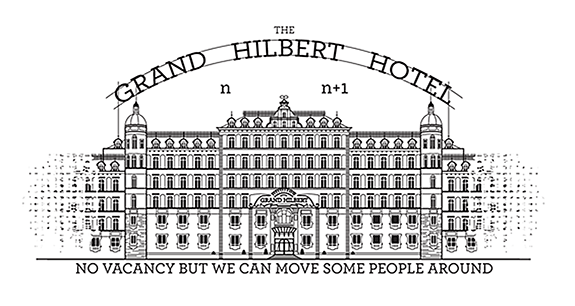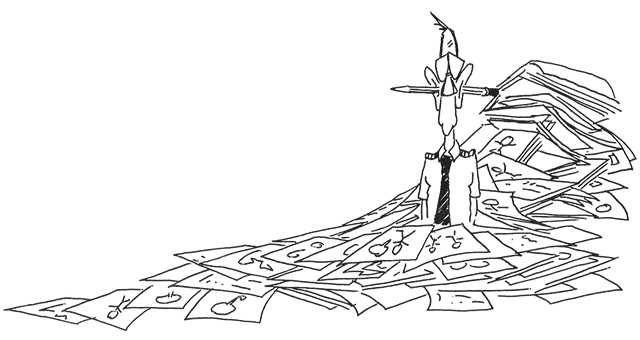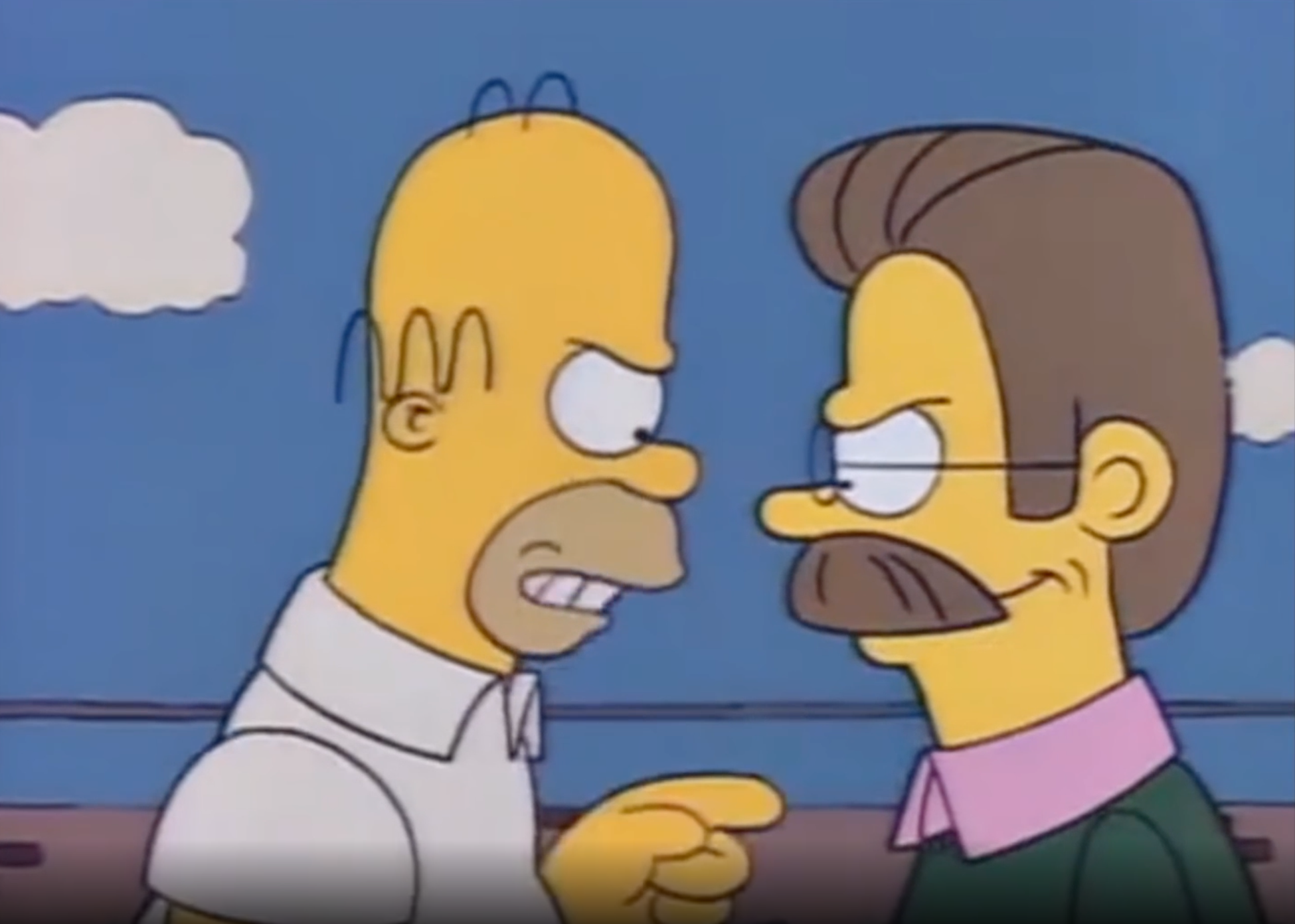We all know what infinity is. But is infinity plus one greater than infinity?
— James Albright
- Dead Putting Society" (1990) tells the story of a miniature golf match, in which Bart Simpson is playing Todd Flanders, the son of neighbor Ned Flanders. It is a very high-stakes confrontation, because the father of the loser faces a terrible fate. He will have to mow the winner's lawn in his wife's dress.
- During a tense exchange between the two fathers, Homer and Ned invoke infinity to reinforce their positions:
- HOMER: This time tomorrow, you' ll be wearing high heels!
- NED: Nope, you will.
- HOMER: 'Fraid not.
- NED: 'Fraid so!
- HOMER: 'Fraid not.
- NED: 'Fraid so!
- HOMER: 'Fraid not infinity!
- NED: 'Fraid so infinity plus one!
- HOMER: D'oh!
- I asked which of the writers had suggested this piece of dialogue, but nobody was able to remember. This is not surprising, as the script was written more than two decades ago. However, there was general agreement that Homer and Ned's petty argument would have derailed the scriptwriting process, as it would have triggered a debate over the nature of infinity. So, is infinity plus one more than infinity? Is it a meaningful statement or just gobbledygook? Can it be proved? In their efforts to answer these questions, the mathematicians around the scripting table would doubtless have mentioned the name of Georg Cantor, who was born in St. Petersburg, Russia, in 1845. Cantor was the first mathematician to really grapple with the meaning of infinity. However, his explanations were always deeply technical, so it was left to the eminent German mathematician David Hilbert (1862-1943) to convey Cantor's research. He had a knack for finding analogies that made Cantor's ideas about infinity more palatable and digestible.
- One of Hilbert's most celebrated explanations of infinity involved an imaginary building known as Hilbert's Hotel-a rather grand hotel with an infinite number of rooms and each door marked 1, 2, 3, and so on. One particularly busy evening, when all the rooms are occupied, a new guest turns up without a reservation. Fortunately, Dr. Hilbert, who owns the hotel, has a solution. He asks all his guests to move from their current rooms to the next one in the hotel. So the guest in room 1 moves to room 2, the guest in room 2 moves to room 3, and so on. Everyone still has a room, but room 1 is now empty and available for the new guest. This scenario suggests (and it can be proven more rigorously) that infinity plus one is equal to infinity; a paradoxical conclusion, perhaps, but one that is undeniable.
- This means that Ned Flanders is wrong when he thinks he can trump Homer's infinity with infinity plus one. In fact, Flanders would have been wrong even if he tried to win the argument with "infinity plus infinity," as proved by another vignette about Hilbert's Hotel.
- The hotel is full again when an infinitely large coach arrives. The coach driver asks Dr. Hilbert if the hotel can accommodate his infinite number of passengers. Hilbert is unfazed. He asks all his current guests to move to a room number that is double their current room number, so the guest in room 1 moves to room 2, the guest in room 2 moves to room 4, and so on. The existing infinity of guests now occupy only the even-numbered rooms, and an equally infinite number of odd-numbered rooms are now vacant. In this way, the hotel is able to provide rooms for the infinite number of coach passengers.
- Thus, Hilbert's Hotel has clearly demonstrated that:
infinity= infinity + 1
infinity = infinity + infinity
Source: Singh, pp. 104 - 106

The Grand Hilbert Hotel, Ana Pires
References
(Source material)
Singh, Simon, The Simpsons and Their Mathematical Secrets, 2013, Thomson-Shore Inc., Dexter, Michigan.


